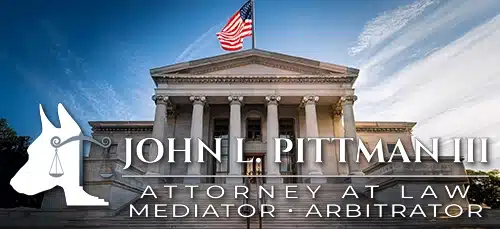Texas Divorce Mediation Timeline: What Happens Next
{ [P]TL;DR: In Texas, divorce mediation usually happens after filing and before a final trial, and it can







In Duncanville, Texas, a city with a rich history dating back to 1845, employee privacy issues have become increasingly important in recent years. As the city has grown from its humble beginnings as a small farming community to a thriving suburb of Dallas, the complexities of workplace privacy have evolved alongside it. Duncanville’s diverse economy, which includes sectors such as healthcare, retail, and education, presents unique challenges when it comes to balancing employee privacy rights with employer interests. From the proper handling of personal information to the appropriate use of surveillance technology in the workplace, employers in Duncanville must navigate a complex legal landscape to ensure they’re protecting their employees’ privacy while maintaining a productive work environment.
As Duncanville continues to grow and attract new businesses, it’s crucial for both employers and employees to understand their rights and responsibilities regarding workplace privacy. Whether you’re a small business owner operating out of the historic downtown area or a large corporation situated near Duncanville High School, addressing employee privacy concerns is essential for maintaining a positive work culture and avoiding potential legal issues. If you’re facing challenges related to employee privacy in Duncanville, don’t hesitate to reach out to John L. Pittman III – Attorney at Law for expert guidance. With extensive experience in employment law and a commitment to personalized service, our team can help you navigate the complexities of employee privacy issues and develop effective policies tailored to your specific needs. Call us today at 833-773-9889 to schedule a consultation and take the first step towards ensuring a secure and compliant workplace.
Implementing robust employee privacy measures can significantly boost workplace trust and morale. When employees feel their personal information is protected and their privacy is respected, they’re more likely to develop a sense of security and loyalty towards their employer. This trust translates into improved job satisfaction, increased productivity, and better overall performance. By prioritizing employee privacy, companies create an environment where staff members feel valued and respected, leading to stronger team dynamics and a more positive work culture. If you’re looking to foster a workplace built on trust and mutual respect, our experienced legal team can guide you through the process of developing comprehensive employee privacy policies.
One of the most crucial benefits of addressing employee privacy issues is the reduction of legal risks and improved compliance with data protection regulations. As privacy laws continue to evolve, businesses must stay ahead of the curve to avoid costly litigation and penalties. By implementing strong employee privacy measures, companies can mitigate the risk of data breaches, unauthorized access to sensitive information, and potential lawsuits stemming from privacy violations. Our law firm specializes in navigating the complex landscape of privacy regulations, ensuring your business remains compliant while protecting both your employees and your company’s interests. Don’t leave your organization vulnerable to legal challenges – contact us today for a personalized consultation on strengthening your employee privacy practices.
In today’s competitive job market, prioritizing employee privacy can give your company a significant edge in attracting and retaining top talent. Job seekers are increasingly conscious of their digital footprint and personal data security, making privacy policies a crucial factor in their employment decisions. By demonstrating a commitment to protecting employee privacy, your organization can stand out as an employer of choice, attracting high-caliber candidates who value their personal information security. Moreover, existing employees are more likely to remain loyal to a company that respects their privacy, reducing turnover rates and associated costs. Let our experienced attorneys help you develop privacy policies that not only comply with legal requirements but also serve as a powerful tool for talent acquisition and retention. Reach out to us for expert guidance on creating a privacy-conscious workplace that sets your company apart in the eyes of both current and prospective employees.
Employee privacy issues can arise in various workplace scenarios, often catching both employers and employees off guard. You might need legal assistance for employee privacy matters if you’re facing situations such as unauthorized access to personal information, surveillance concerns, or disputes over social media policies. For instance, if an employer is monitoring employee communications without proper consent or justification, it could lead to serious privacy violations. Similarly, if sensitive employee data, such as medical records or financial information, is mishandled or breached, it may necessitate legal intervention to protect the affected individuals’ rights and seek appropriate remedies.
As workplace technologies continue to evolve, new challenges in maintaining employee privacy emerge. From biometric data collection to the use of artificial intelligence in employee monitoring, the legal landscape is constantly shifting. If you’re grappling with these complex issues, whether as an employer or employee, it’s crucial to seek expert legal guidance. At John L. Pittman III – Attorney at Law, we offer personalized service and extensive experience in navigating the intricacies of employee privacy laws. Don’t let uncertainty compromise your rights or expose your business to potential liabilities. Contact us today for a consultation and benefit from our commitment to client satisfaction and our deep understanding of Houston’s legal landscape.
When it comes to employee privacy issues in Duncanville, Texas, clients consistently turn to John L. Pittman III – Attorney at Law for expert legal guidance. Despite being based in Houston, our firm has built a strong reputation for providing exceptional service to clients throughout the region, including Duncanville. Our deep understanding of Texas employment law, combined with our commitment to protecting employee rights, makes us the go-to choice for workers facing privacy concerns in the workplace. We stay up-to-date with the latest legal developments and technology-related privacy issues, ensuring that our clients receive the most current and effective representation possible.
Our firm’s dedication to personalized service sets us apart in Duncanville and beyond. We take the time to listen to each client’s unique situation, offering tailored solutions that address their specific needs and concerns. Whether you’re dealing with unauthorized surveillance, data breaches, or invasive background checks, our experienced legal team is ready to advocate for your rights. Don’t let employee privacy issues compromise your peace of mind or professional standing. Contact us today for a confidential consultation and experience the difference that comes with working with a law firm that truly puts your interests first. With our extensive experience and unwavering commitment to client satisfaction, we’re here to help you navigate the complex landscape of employee privacy law and protect your rights in the workplace.


Employee Privacy Issues Attorney at Law






John L. Pittman III – Attorney at Law
{ [P]TL;DR: In Texas, divorce mediation usually happens after filing and before a final trial, and it can
Texas custody disputes can often be resolved through mediation, where parents work with a neutral mediator to negotiate
{ [P]TL;DR: Texas probate and estate disputes can escalate quickly because they blend money, grief, and long-standing family
John L. Pittman III provides comprehensive legal representation across personal injury, employment, IP, criminal defense, and business law.
"*" indicates required fields
MENU